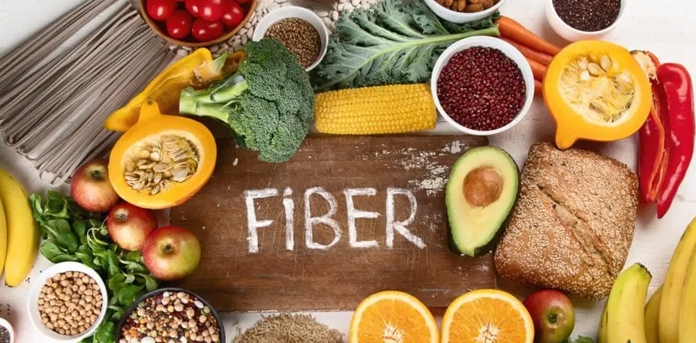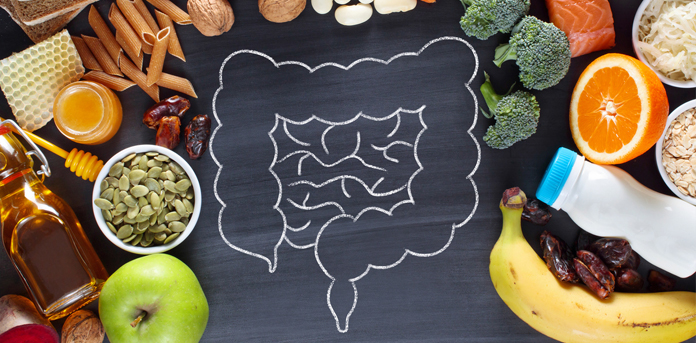Incorporating dietary fiber into your meals can be a game-changer for achieving your weight loss and health goals. This underestimated nutrient has remarkable benefits for shedding unwanted pounds and promoting a healthy digestive system.
This blog post delves into the science-backed benefits of fiber and provides valuable insights on how to leverage its potential for your well-being. Join us on the path to a healthier, happier you with the transformative power of fiber.
Understanding Dietary Fiber

The indigestible part of our diet that offers numerous health benefits is called dietary fiber. It is only found in plant-based foods and comes in two main forms – soluble and insoluble fiber. Soluble fiber dissolves in water and turns into a gel-like substance. This helps to lower cholesterol levels and stabilize blood sugar levels. Insoluble fiber, on the other hand, adds bulk to our stools, preventing constipation and promoting regular bowel movements. Together, both types of fiber work together to support overall digestive health.
Benefits Of Dietary Fiber For Weight Loss
Satiety And Reduced Caloric Intake
The incredible ability of dietary fiber to make you feel full is essential for weight loss. Consuming fiber-rich foods takes longer to chew and digest, which signals your brain that you’re full. This natural feeling of fullness helps prevent overeating and assists in portion control, leading to a decrease in calorie intake.
Enhanced Metabolism And Fat Loss
Research has shown that consuming certain types of dietary fiber, particularly soluble fiber, can lead to improved metabolic function. Soluble fiber plays a crucial role in stabilizing blood sugar levels, preventing sudden spikes and crashes. This consistent regulation of blood sugar promotes the body to burn stored fat for energy, which can aid in weight loss and decrease the buildup of excess fat.
Regular Bowel Movements And Gut Health
Insoluble fiber, also known as “roughage,” adds bulk to stool and promotes regular bowel movements. This prevents constipation and supports a healthy digestive system. Furthermore, fiber acts as a natural cleanser, sweeping waste products through the intestines and preventing the buildup of toxins. A well-functioning digestive system is the foundation of overall well-being.
Gut Microbiome Support
Consuming foods high in dietary fiber can act as a prebiotic, feeding the beneficial bacteria in your gut. This leads to a healthy gut microbiome, which has been linked to many health benefits such as better digestion, stronger immune function, and even improved mental well-being. By including fiber-rich foods in your diet, you are providing the necessary energy for these helpful bacteria to thrive.
Reduced Risk Of Gastrointestinal Disorders
Including high amounts of fiber in your diet has been shown to decrease the chance of various gastrointestinal problems. The gel-like texture of soluble fiber can ease inflammation in the digestive system which is especially helpful for those with irritable bowel syndrome (IBS). Furthermore, fiber’s regular movement through the intestines can lower the risk of diverticular disease and hemorrhoids.
By adding fiber to your diet, you can not only aid in weight loss but also promote a healthy and well-functioning digestive system. Its numerous benefits make it a vital part of your daily meals.
Fiber’s Impact On Weight Loss
Including fiber in your diet can be beneficial for weight loss as it helps you feel fuller for longer periods. Foods that are high in fiber take more time to chew and digest, which reduces the temptation to overeat or snack between meals. Additionally, fiber-rich foods tend to have fewer calories per volume, allowing you to consume more without exceeding your calorie limit. This means you can enjoy larger portions of fruits and vegetables without worrying about your calorie intake.
Multiple studies have demonstrated that individuals who consume more fiber tend to have lower body weight and BMI. This is because fiber can regulate appetite hormones and suppress cravings, making weight loss more sustainable. These findings have been scientifically proven and reveal that incorporating fiber into your diet can be an effective weight management strategy.
Enhancing Digestive Health With Fiber
Fiber is more than just a tool for weight loss; it’s also an important ally in maintaining a healthy digestive system. Insoluble fiber, which adds bulk to stools, helps to prevent constipation and promote regular bowel movements. This seemingly simple benefit can have a big impact on overall well-being since a sluggish digestive system can lead to discomfort and more serious gastrointestinal problems.
In addition to these benefits, fiber is also helpful in preventing gastrointestinal disorders. Soluble fiber, with its gel-like consistency, can soothe an inflamed gut lining, making it beneficial for conditions like irritable bowel syndrome (IBS). Moreover, fiber acts as a prebiotic, providing nourishment for beneficial gut bacteria. A thriving gut microbiome is crucial for immune function, nutrient absorption, and even mood regulation.
Choosing Fiber-Rich Foods
Incorporating fiber into your diet is easier than you may think. Fruits such as apples, pears, and berries are high in soluble fiber, while vegetables like broccoli, carrots, and spinach provide sufficient insoluble fiber. Whole grains like oats, quinoa, and brown rice are also great sources. Legumes, such as beans, lentils, and chickpeas, are not only high in fiber but also offer plant-based protein.
To make the transition into a fiber-rich diet seamless, start small. Begin your day with a bowl of oatmeal topped with fresh fruit. Snack on crispy carrot sticks with hummus. Swap refined grains for whole grains in your meals. Gradually increase your intake of fiber-rich foods to avoid any digestive discomfort that may arise from a sudden increase in fiber consumption.
Recommended Daily Fiber Intake
Once we’ve acknowledged the significance of dietary fiber, how much should you target to consume each day? According to general guidelines, adults should aim for approximately 25 to 30 grams of fiber per day. Nevertheless, individual requirements can differ based on factors like age, gender, and activity level. It’s crucial to pay attention to your body and regulate your intake accordingly.
Potential Pitfalls And Precautions
Fiber is undoubtedly beneficial for your health, but excessive consumption should be avoided. A sudden increase in fiber intake can result in bloating, gas, and even diarrhea. To prevent these uncomfortable side effects, it’s important to introduce fiber gradually and consume plenty of water throughout the day. Drinking enough water helps fiber move smoothly through your digestive system.
Fiber is a crucial component of a healthy diet. It plays a significant role in weight loss, digestive health, and overall well-being. By understanding the difference between soluble and insoluble fiber, incorporating fiber-rich foods into your meals, and making mindful adjustments to your diet, you can embark on a journey towards a healthier, happier you. Allow fiber to guide you on the path to wellness, one delicious and nutritious bite at a time.
FAQs
How does dietary fiber contribute to weight loss?
Dietary fiber plays a pivotal role in weight loss by promoting feelings of fullness and reducing calorie intake. When you consume foods rich in fiber, they take longer to chew and digest, which leads to a sense of satiety. This natural fullness curbs overeating and helps you control portion sizes. Additionally, some types of fiber, like soluble fiber, can stabilize blood sugar levels, preventing energy crashes and encouraging the body to burn stored fat for energy, ultimately aiding in weight loss.
How does fiber support digestive health?
Fiber is a true champion of digestive health due to its impact on regular bowel movements and gut function. Insoluble fiber, found in foods like whole grains and vegetables, adds bulk to stool, preventing constipation and promoting regularity. This prevents discomfort and supports a healthy gut environment. Moreover, fiber acts as a prebiotic, providing nourishment for beneficial gut bacteria. A balanced gut microbiome is essential for proper digestion, nutrient absorption, and even immune function.
What are some easy ways to incorporate more fiber into my diet?
Incorporating fiber into your diet can be both simple and delicious. Start by choosing whole, unprocessed foods like fruits, vegetables, whole grains, legumes, and nuts. Swap out refined grains for whole grains like brown rice, quinoa, and whole wheat bread. Add a variety of colorful vegetables to your meals, and enjoy fruits as snacks or in smoothies. Incorporating beans and lentils into soups, stews, and salads is another excellent way to boost your fiber intake. Remember to increase fiber gradually and drink plenty of water to support healthy digestion.

